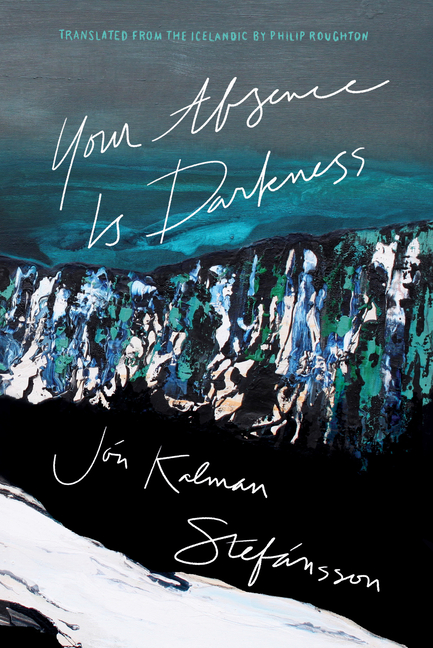Each story could stand on its own; one of the pleasures of the novel is the slow revelation of their connections. This is a tale of heritage, a topic hardly unique to Iceland, and yet it was impossible not to feel that it shares many of the same preoccupations—genealogical and topographical—with classic 13th- and 14th-century Icelandic family sagas ... The structure of Your Absence Is Darkness is best described as a series of recursions: The stories build and break apart, yield to other stories, emerge again later, sometimes at length, sometimes in fragments, flashbacks, single words. The effect is kaleidoscopic; as the narrative turns, pieces shift, stories merge, themes dilate and contract. I fantasized about an edition printed in color, each narrative strand a hue of its own, the shuttling, shuffling syntax fractal in its effect ... In linking remembering to re-creation, he uses amnesia to bring author and reader together as common travelers into the unknown. For what are we upon opening a new book if not amnesiac? We must have our new lives created for us. Either it must be explicitly explained, or we must piece together clues, must eavesdrop. We too appear in the churchyard without memory, and meet the world anew.
Read Full Review >>

